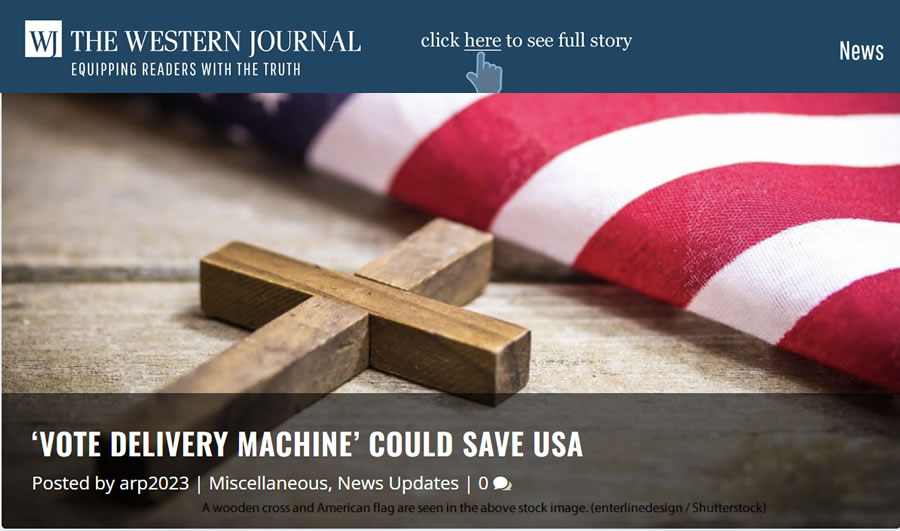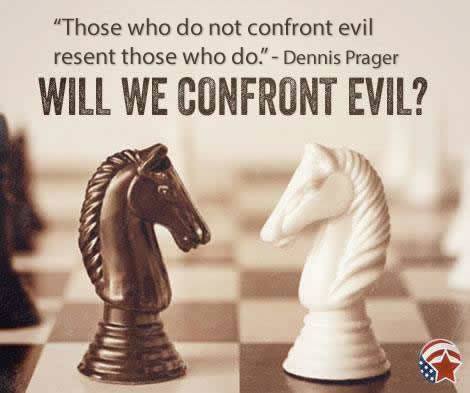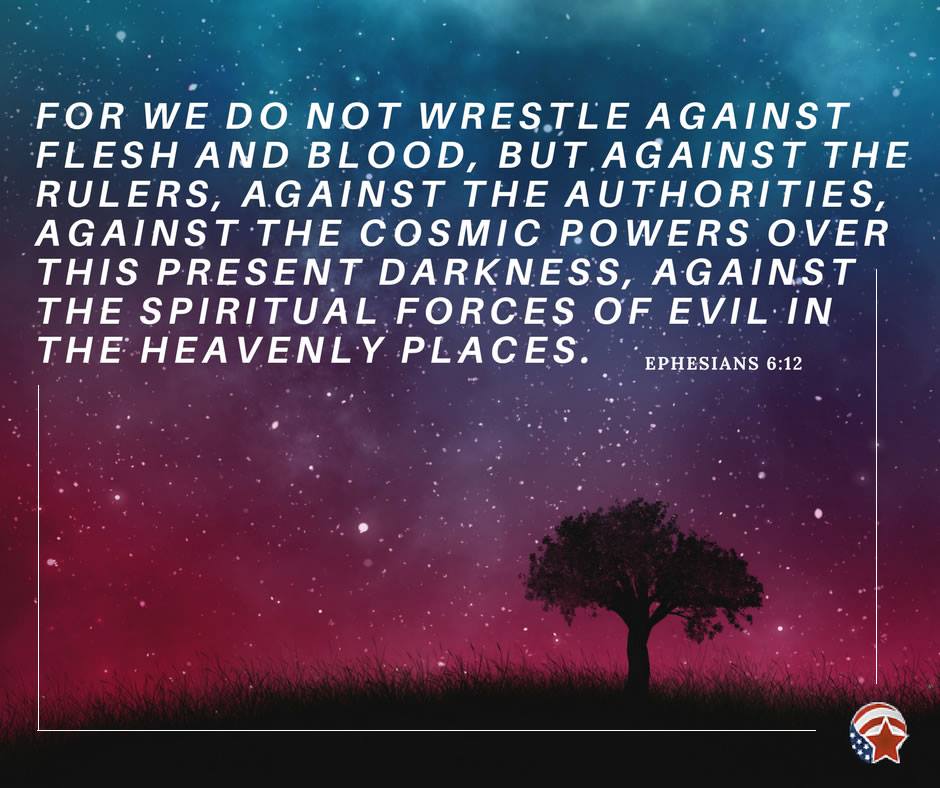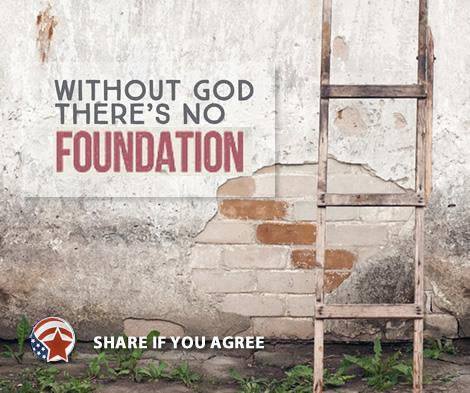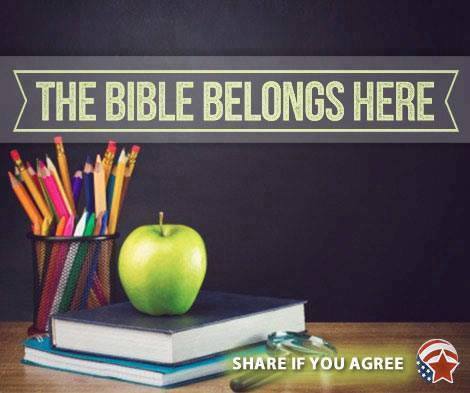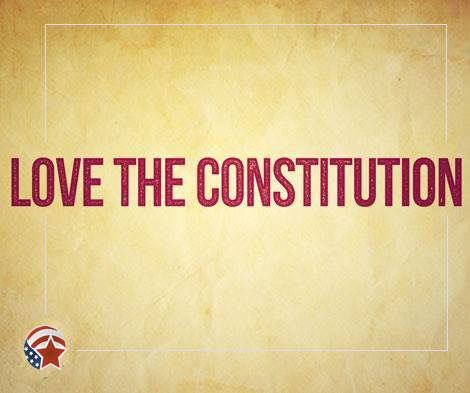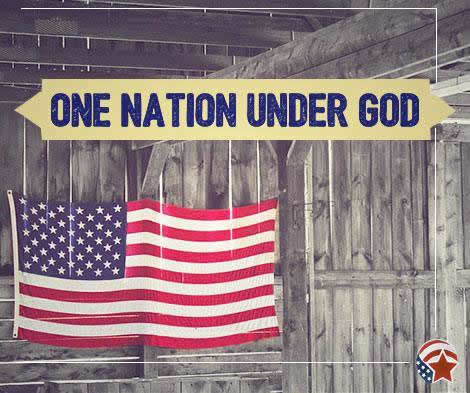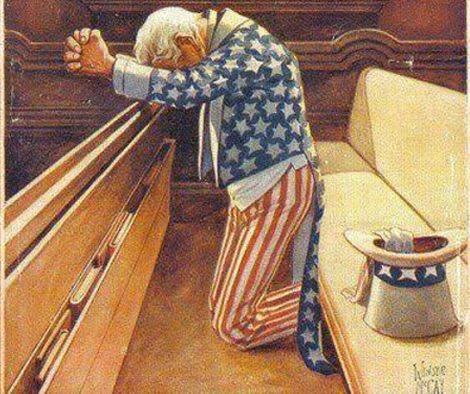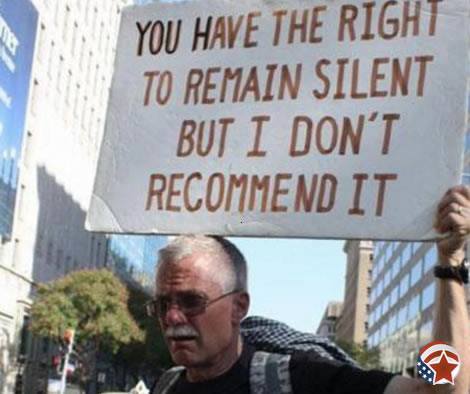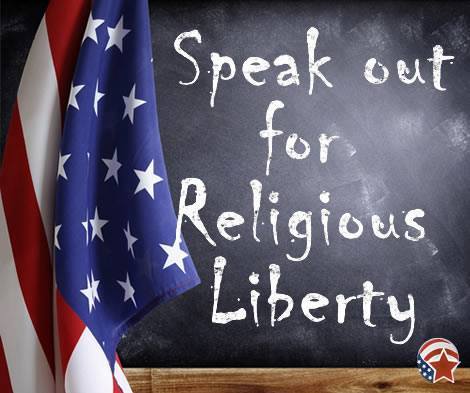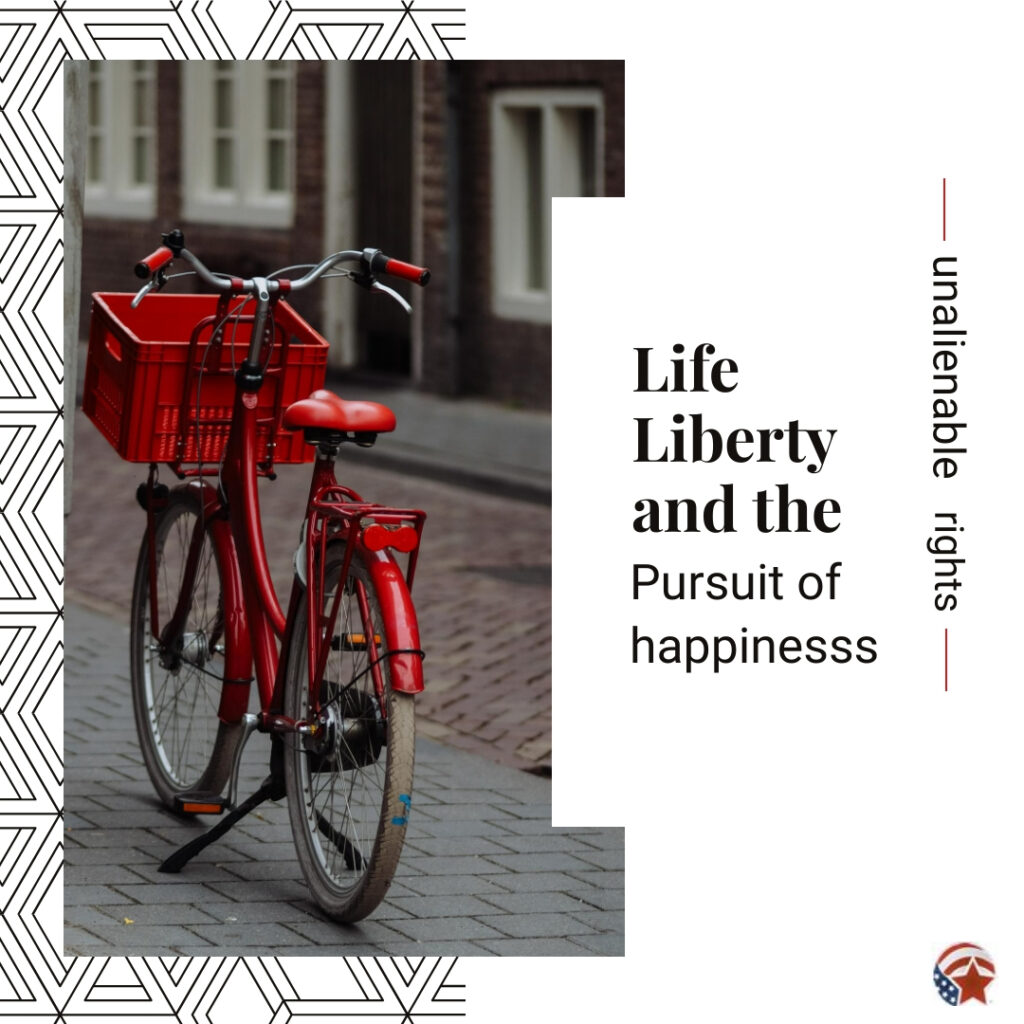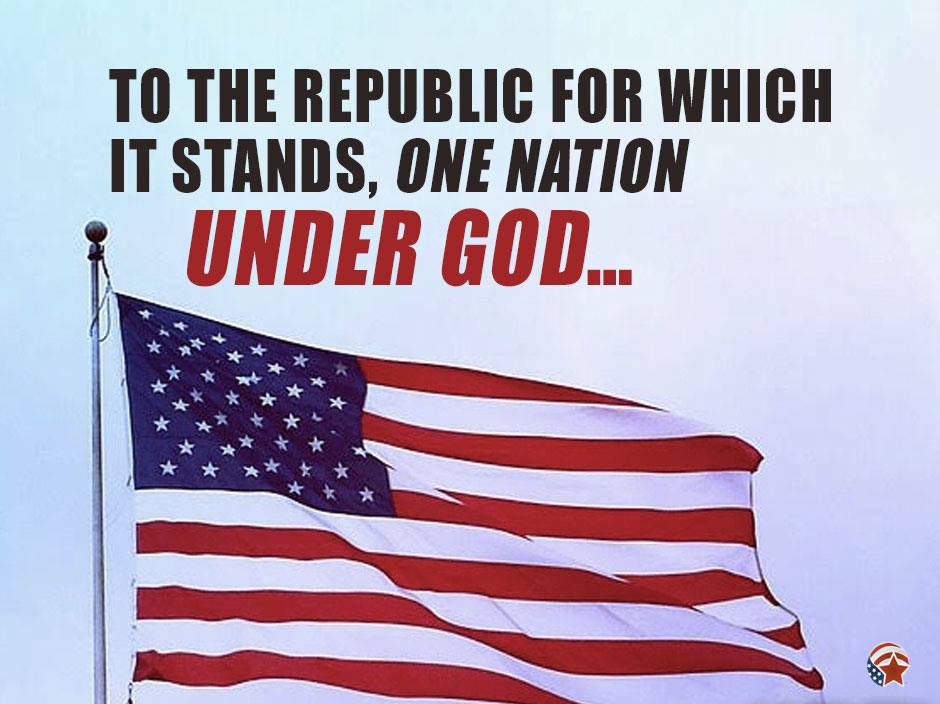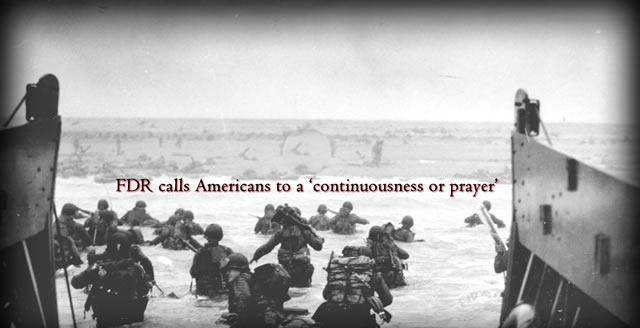
President Franklin D. Roosevelt led the nation in a prayer that evening, a prayer that he had personally prepared earlier that day. Of a population of 132 million, an estimated 100 million Americans were listening.
“My fellow Americans: Last night, when I spoke with you about the fall of Rome, I knew at that moment that troops of the United States and our allies were crossing the Channel in another and greater operation. It has come to pass with success thus far. “And so, in this poignant hour, I ask you to join with me in prayer: …”
Seventy-five years ago in Normandy, France, the sun came up at 5:58 a.m. on D-Day, June 6, 1944. At 6:30 a.m., the first of the 150,000 amassed Allied forces began landing on the beaches. Because success was far from guaranteed, Supreme Allied Commander General Dwight Eisenhower – who had graduated first in his 1926 class of 245 officers at the United States Army Command and General Staff School in Fort Leavenworth, KS (graduate school for United States Army) – had prepared a letter of resignation in case of failure.
“German soldiers defending the French coast at Normandy beheld an awe-inspiring sight – the largest amphibious invasion force in history massed in the waters of the English Channel. The long-awaited invasion of northwest Europe was underway.
“The giant invasion had taken years to organize. Hundreds of thousands of men and millions of tons of weapons and equipment were transported across the Atlantic Ocean to Britain in advance of the operation. The invasion force consisted chiefly of Americans, Britons, and Canadians.” 1
That Tuesday morning as Americans woke up, radio’s – the world wide web of the 1930s – began airing the news that the Allied invasion of Europe had started. Churches across America began to fill, asking God to spare ‘our boys’ on the beaches and save us from the infernal Adolf Hitler.
President Franklin D. Roosevelt led the nation in a prayer that evening, a prayer that he had personally prepared earlier that day. Of a population of 132 million, an estimated 100 million Americans were listening.
“My fellow Americans: Last night, when I spoke with you about the fall of Rome, I knew at that moment that troops of the United States and our allies were crossing the Channel in another and greater operation. It has come to pass with success thus far.
“ And so, in this poignant hour, I ask you to join with me in prayer: … ”
Freedom is not free . “ This means not only ,” writes Os Guinness, “ that blood is the price of defending freedom abroad, but also that, if freedom is to flourish and endure, freedom’s essential character and conditions must be guarded vigilantly, both at home and overseas. Freedom can no more take a holiday from history than from gravity, and the plain fact is that it is harder to be free than to not be free, for freedom’s fire has not only to be lit once but must be kindled and rekindled all over again in each succeeding generation. ” 2
America’s categorical break with God Jehovah over the past 50 years has brought about a venal and dissolute political and social culture, which, unless opposed, will result in anarchy as both its natural consequence and its fitting punishment. 3
Solomon prescribed a cure for the pernicious rot eroding America: “ Those who forsake the law praise the wicked, but those who keep the law contend with them. Evil people do not understand justice, but those who seek the Lord understand it all.” 4 Jewish Hebrew scholar Michael V. Fox elaborates on the word ‘contend’ as implying “that the righteous proactively confront the wicked.” 5 “ Justice ,” Bruce K. Waltke adds, “entails doing battle against the wicked, not extolling them. … T he line dividing humanity is not racial, political, or even religious, but spiritual .” 6
Which brings us to contemporary America, the Church, and Dr. Peter J. Leithart’s book 1 & 2 Kings :
“ Indifference to idolatry has its roots in the early modern period. According to a common telling of the story, Europeans discovered that theology was bloodily divisive and concluded that the only way to restore comparative harmony was to expunge theology from the public square, forcing theological decision and debate into the recesses of the conscience or, at best, safely behind the walls of the church.
“ Liberal theology means many things, but one of its central themes is the denial of enmity and especially the denial that God has enemies . On this score, however, conservative evangelicals often share much common ground with liberals. Nowhere is this more evident than in hymnody, always a key barometer of theology and piety. For someone raised on 19th-century revival hymns, the most surprising thing about the Psalms is the prominence of enemies and the psalmists’ militant reaction to them.
“Eliminating the category of ‘enmity’ from social and political theory has been one of the grand projects of modernity. Enmity is essential to politics, Carl Schmitt argues, and liberalism is wrong to attempt to turn the enemy into a mere competitor or interlocutor. Sociology and anthropology reimagine the enemy as ‘outsider’ or ‘stranger’, as a member of an ‘out-group’, while postmodern philosophy is obsessed with the ‘other’. Put a McDonald’s and a Gap in every major Middle Eastern city, and terrorism will drown in a wave of Happy Meals. When liberal modernity does not simply ignore the existence of the enemy, it has denied the existence of enmity that cannot be cajoled, co-opted, convinced, or smilingly coerced to become an ally. Strangely, it is not just abstract theorists who hope for a world without enemies, but politicians, even in the aftermath of the attacks of September 11, the Madrid and London bombings, and continuing terror throughout the Middle East .” 7
Gideons and Rahabs are beginning to stand in the public square. “A cloud as small as a man’s hand is coming up from the sea.” 8 Charles Spurgeon used this verse as an illustration of the small signs that come before a mighty work of God.
David Lane
American Renewal Project:
The convergence of historical narrative, political philosophy
& biblical wisdom in the public square

